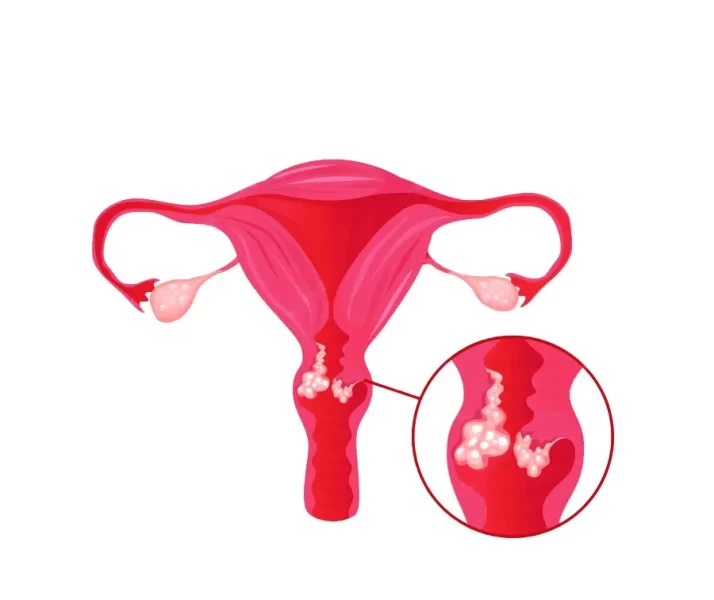
Cervical cancer is a type of cancer that originates in the cells of the cervix, which is the lower part of the uterus (womb) that connects to the vagina. Cervical cancer can develop when abnormal cells in the cervix grow uncontrollably and form a tumor.
Here is an overview of cervical cancer, including its cause, symptoms, prevalence, diagnosis, treatment, and prognosis:
– Prevalence
Cervical cancer is one of the most common types of cancer in women worldwide. The prevalence of cervical cancer varies by region, with higher rates in low- and middle-income countries where access to cervical cancer screening and HPV vaccination may be limited. In many high-income countries, widespread cervical cancer screening programs have led to a significant decrease in the incidence of this cancer.
The primary cause of cervical cancer is persistent infection with high-risk strains of the human papillomavirus (HPV), which is a sexually transmitted infection. Not all HPV infections lead to cervical cancer, but chronic infection with specific HPV types can increase the risk significantly. Other risk factors for cervical cancer include:
Smoking tobacco is associated with an increased risk of cervical cancer.
Conditions that weaken the immune system, such as HIV infection, can make it more difficult for the body to clear HPV infections.
Starting sexual activity at a young age increases the risk of HPV exposure.
Having multiple sexual partners or having a partner with multiple sexual partners can increase the risk of HPV infection.
Cervical cancer may not cause noticeable symptoms in its early stages. However, as the disease progresses, it may lead to the following symptoms:
This may include bleeding between periods, after sexual intercourse, or after menopause.
An unusual vaginal discharge that may be bloody, foul-smelling, or heavier than usual.
Pain in the pelvis or lower abdomen, especially during sexual intercourse or urination, can be a symptom.
If the cancer has spread to nearby tissues or lymph nodes, it can cause back pain or leg swelling.
Diagnosing cervical cancer typically involves several steps:
Clinical Staging is done by examining the cervix (Per speculum, per vaginum, per rectal)
A Pap smear is a screening test that involves collecting cells from the cervix to check for abnormalities. If abnormal cells are detected, further testing is needed.
In cases of abnormal Pap smear results, an HPV test may be performed to determine if high-risk HPV types are present.
If results from Pap smear or HPV testing suggest abnormalities, a colposcopy is performed. During this procedure, a special magnifying instrument is used to examine the cervix more closely.
If abnormal areas are identified during a colposcopy, a biopsy is taken to confirm the presence of cancerous or precancerous cells.
Imaging studies such as CT scans, MRI scans, or PET scans may be used to assess the extent of cancer and determine if it has spread to other parts of the body.
Treatment for cervical cancer depends on the stage of the disease, the patient's overall health, and other factors. Treatment options may include:
Surgery may involve removing the cancerous tissue, the cervix (hysterectomy), or nearby lymph nodes depending on staging.
Targeted therapy drugs specifically target certain molecules or pathways involved in cancer cell growth.
Chemotherapy involves the use of drugs to kill cancer cells or stop their growth.
Radiation therapy uses high-energy beams to target and destroy cancer cells.
Immunotherapy drugs help the immune system fight cancer cells more effectively.
- Prognosis
The prognosis for cervical cancer depends on the stage at which it is diagnosed. When detected at an early stage, cervical cancer is highly treatable, and the prognosis is generally favorable. However, the prognosis becomes less favorable as the cancer advances and spreads to other parts of the body.
Regular cervical cancer screening through Pap smears and HPV testing is crucial for early detection and treatment. With appropriate screening and vaccination against high-risk HPV types, the incidence of cervical cancer can be significantly reduced, and many cases can be prevented.
Contact us today to schedule an appointment with Dr. Vindhya G


 Whatsapp Now
Whatsapp Now +918106688026
+918106688026